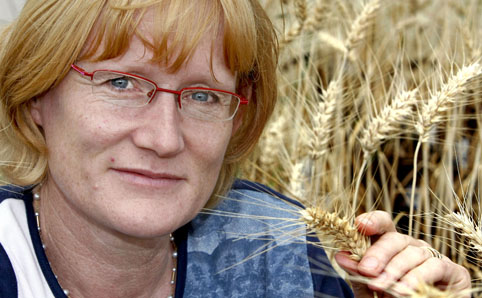Latest News Archive
Please select Category, Year, and then Month to display items
04 April 2024
|
Story Lunga Luthuli
|
Photo SUPPLIED
 Dr Juliet Kamwendo champions gender-inclusive climate action in Africa. Her expertise at the recently held AFR100 workshop highlighted vital steps towards sustainable and equitable development.
Dr Juliet Kamwendo champions gender-inclusive climate action in Africa. Her expertise at the recently held AFR100 workshop highlighted vital steps towards sustainable and equitable development.
Dr Juliet Kamwendo, Lecturer and Programme Director for Gender Studies in the Centre for Gender and Africa Studies at the University of the Free State, is spearheading efforts to integrate gender considerations into Africa's climate restoration agenda. Reflecting on her involvement, Dr Kamwendo stated, "This is particularly crucial, as women make up almost 50% of the population in Africa, and the depletion and degradation of land affect them disproportionately."
She recently served as a gender expert at the AUDA-NEPAD AFR100 workshop in Ouagadougou, Burkina Faso, from 25 to 29 March 2024. This initiative aims to restore forests and degraded land across Africa by 2030, with a focus on gender equality.
The workshop emphasised the integration of gender perspectives into the AFR100 project, acknowledging the disproportionate impact of land degradation on women. Dr Kamwendo's expertise highlighted the need to empower women in climate change interventions, addressing existing gender inequalities exacerbated by environmental degradation.
“Women – who are primarily responsible for household food security and water provision – bear the brunt of environmental degradation, leading to increased workloads, reduced income opportunities, and heightened vulnerability to climate-related disasters. Furthermore, the loss of forest cover and biodiversity further exacerbates the challenges faced by women, particularly in rural areas where they depend heavily on natural resources for their livelihoods,” added Dr Kamwendo.
Her participation highlights academia's crucial role in fostering inclusive and sustainable development, emphasising interdisciplinary collaboration to tackle complex environmental challenges. Through initiatives such as AFR100, stakeholders are working towards a more resilient and gender-responsive future for Africa.
African Union acknowledges one of our own
2012-01-23
 |
|
Prof. Maryke Labuschagne
Photo: Hannes Pieterse
|
The African Union awarded an international award to Maryke Labuschagne, a professor in Plant Breeding at our Faculty of Natural and Agricultural Sciences, for her contribution to science in Africa.
Prof. Labuschagne received the African Union Kwame Nkrumah Scientific award in the category Life Sciences – Continental level. This is the highest level of this prestigious award programme.
The African Union Commission is committed to ensure that science and technology contributes to sustainable development efforts. In 2008 the African Union Commission launched the prestigious African Union Scientific Award Programme. This programme was later renamed the African Union Kwame Nkrumah Scientific awards.
The programme is implemented at National level for young researchers, Regional level for women scientists and is open to all scientists on Continental level.
The Continental level is the highest level of the programme. The objective is to give out scientific awards to top African scientists for their scientific achievements, valuable discoveries and findings.
Prof. Labuschagne has been part of our university for the past 23 years. Over the last 20 years she has been involved in training and educating scientists in plant breeding all over Africa. Her work also entails the development of better cultivars to ensure food sustainability on the continent.
“I really did not expect to win this award. The criteria were really strict and one always sells yourself and your achievements short,” says Prof. Labuschagne.
With this award, Prof. Labuschagne also receives US $100 000 (about R 804 180) in prize money, which will be used to renovate her department’s lab facilities and provide bursaries.
The official award ceremony will be held on Saturday 28 January 2012 at the United Nations Conference Centre in Addis Ababa, Ethiopia.